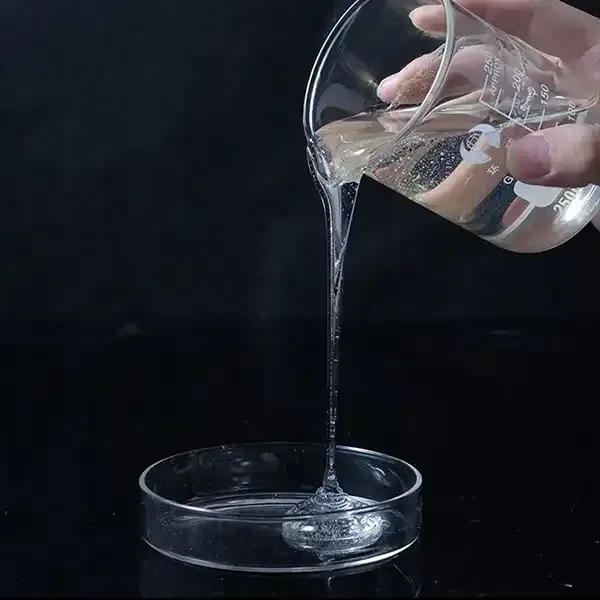The Importance of Adhesive Chemicals in Modern Manufacturing
Adhesive chemicals play a crucial role in a wide range of industries, from construction and automotive to electronics and aerospace. They are substances used to bond different materials together, providing essential strength and durability to products. The use of adhesives has steadily increased over the past few decades, driven by the need for efficient, reliable, and effective bonding solutions.
Types of Adhesive Chemicals
Adhesives can be broadly categorized into several types, each serving specific applications based on their chemical composition and physical properties. The most common types include
1. Polymer-Based Adhesives These adhesives are derived from synthetic or natural polymers. Examples include polyvinyl acetate (PVA), epoxy resins, and polyurethane adhesives. They are known for their strong bonding capabilities and versatility, making them suitable for materials like wood, metal, plastics, and ceramics.
2. Cement-Based Adhesives Common in construction, cement-based adhesives are used to bond heavy materials such as tiles, stones, and concrete. They provide excellent strength and durability, especially in outdoor applications where weather resistance is essential.
3. Reactive Adhesives These adhesives cure through a chemical reaction, forming strong bonds. Epoxy and cyanoacrylate adhesives fall into this category and are widely used in applications where quick bonding and high strength are required.
4. Pressure-Sensitive Adhesives (PSAs) Used in everyday products like tapes and labels, PSAs bond when pressure is applied. They do not require heat or solvent for activation, making them user-friendly and convenient.
adhesive chemical

Applications of Adhesive Chemicals
The versatility of adhesive chemicals allows them to be used across various sectors. In the automotive industry, adhesives are employed to bond components, reducing the need for mechanical fasteners and contributing to lighter, more fuel-efficient vehicles. Similarly, in the aerospace sector, lightweight adhesive solutions are critical for enhancing aircraft performance, ensuring safety, and improving fuel economy.
In electronics, adhesive chemicals play a vital role in assembling devices by securely bonding components to circuit boards. With the rapid advancement of technology, manufacturers rely on specialized adhesives that provide superior thermal and electrical conductivity, which is essential for the performance of modern electronic devices.
The construction industry also heavily relies on adhesive chemicals. From flooring and roofing to drywall installation, adhesives facilitate the assembly of structures, improving speed and efficiency on job sites. Moreover, the use of adhesives in construction can contribute to better energy efficiency by minimizing gaps and seams in buildings.
Environmental Considerations
As the demand for adhesive chemicals continues to grow, so does the scrutiny over their environmental impact. Many manufacturers are shifting towards eco-friendly adhesive formulations that contain low or no volatile organic compounds (VOCs) to reduce air pollution and improve indoor air quality. Additionally, the rise of bio-based adhesives, derived from renewable resources, exemplifies the industry's commitment to sustainability.
Conclusion
Adhesive chemicals are integral to modern manufacturing and construction, providing solutions that are not only effective but also adaptable to a wide range of materials and applications. As industries evolve, the development of advanced adhesive formulations will continue to meet the increasing demands for performance, efficiency, and sustainability. With ongoing research and innovation, adhesive chemicals will undoubtedly play a pivotal role in shaping the future of manufacturing and construction, contributing to stronger, lighter, and more environmentally friendly products.
-
Rdp Powder: Key Considerations for Wholesalers in the Building Materials IndustryNewsJul.08,2025
-
Key Considerations for Wholesalers: Navigating the World of Hpmc - Based ProductsNewsJul.08,2025
-
Hpmc Detergent: Key Considerations for WholesalersNewsJul.08,2025
-
Key Considerations for Wholesalers: China Hpmc For Tile Adhesive, Coating Additives, Concrete Additives, and MoreNewsJul.08,2025
-
Crucial Considerations for Wholesalers: Navigating the World of Construction MaterialsNewsJul.08,2025
-
Key Considerations for Wholesalers Sourcing Additive For Cement, Additive For Concrete, Additive For Putty from Additive Manufacturer Shijiazhuang Gaocheng District Yongfeng Cellulose Co., Ltd.NewsJul.08,2025




